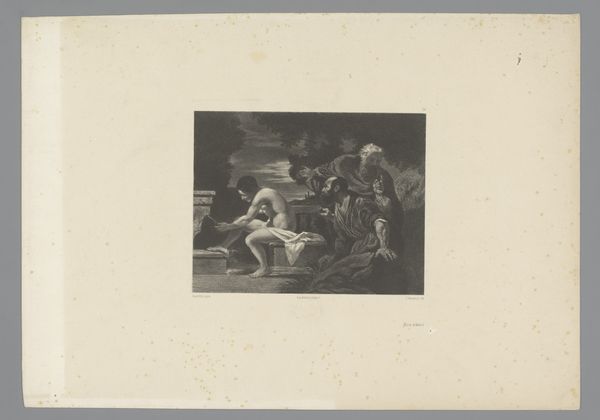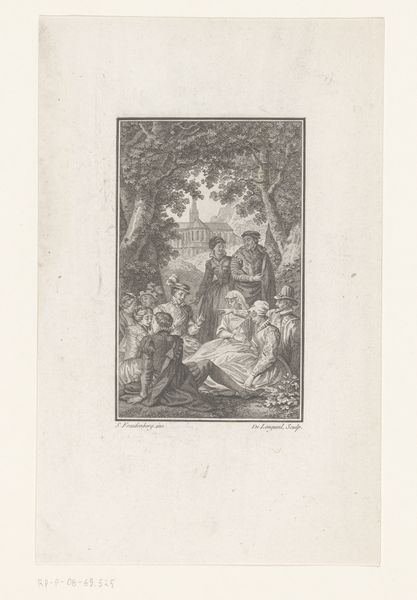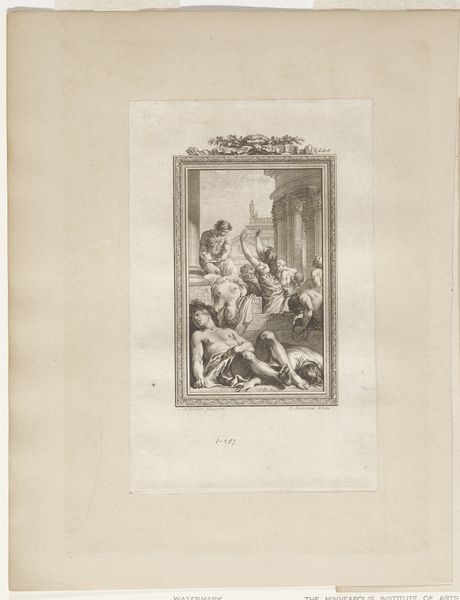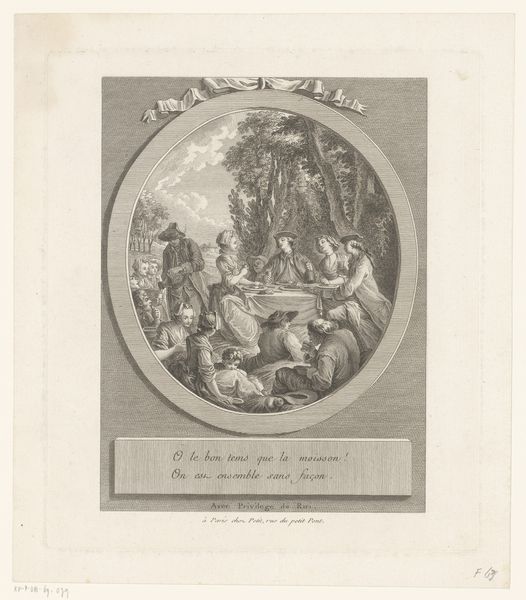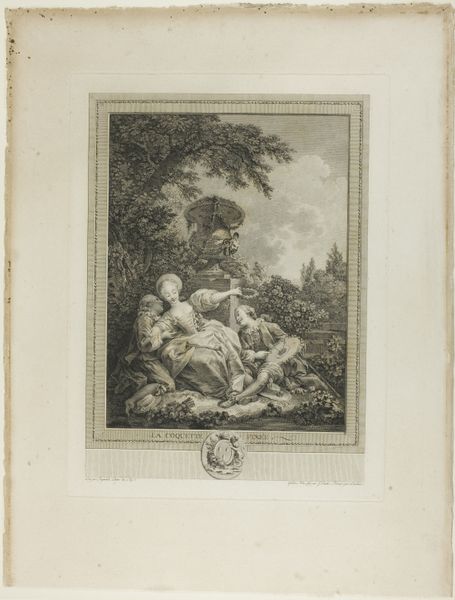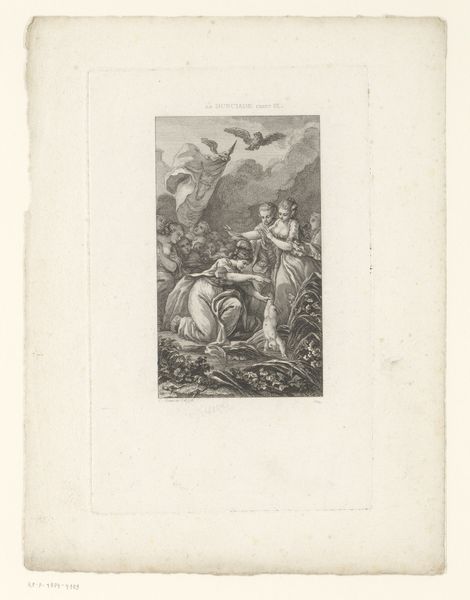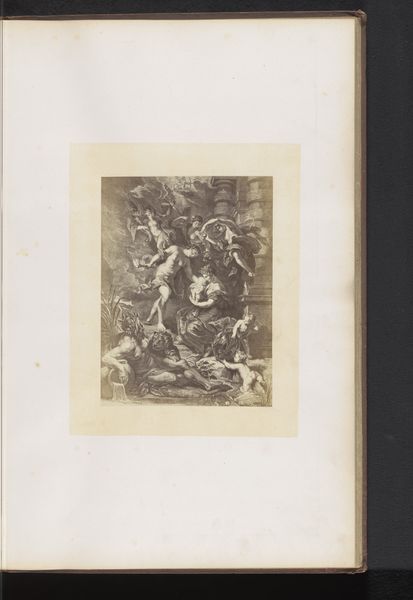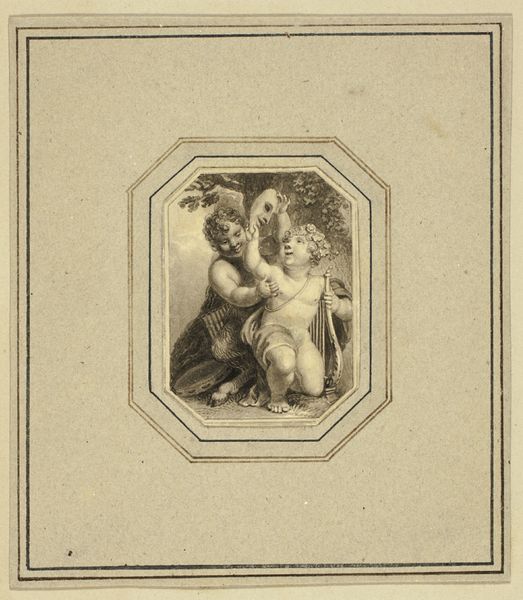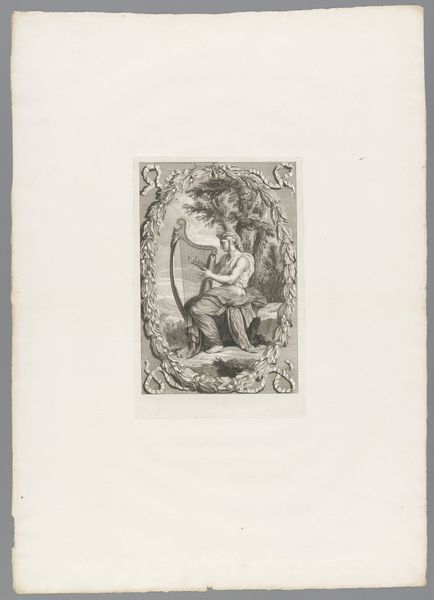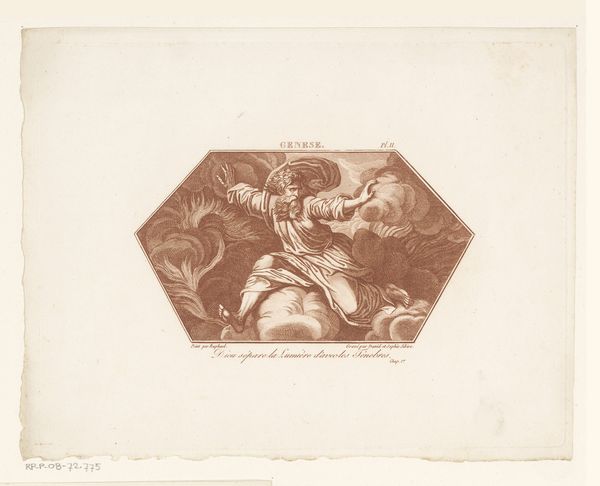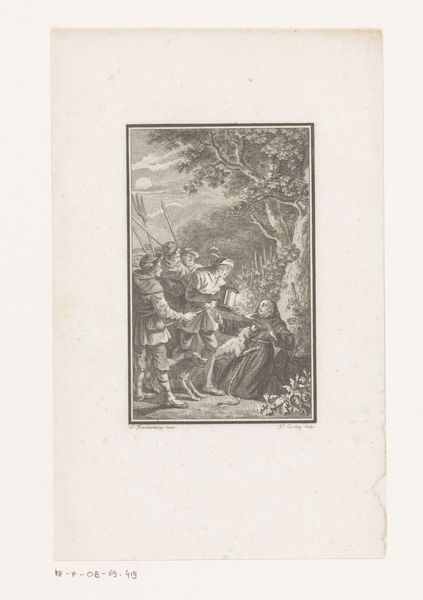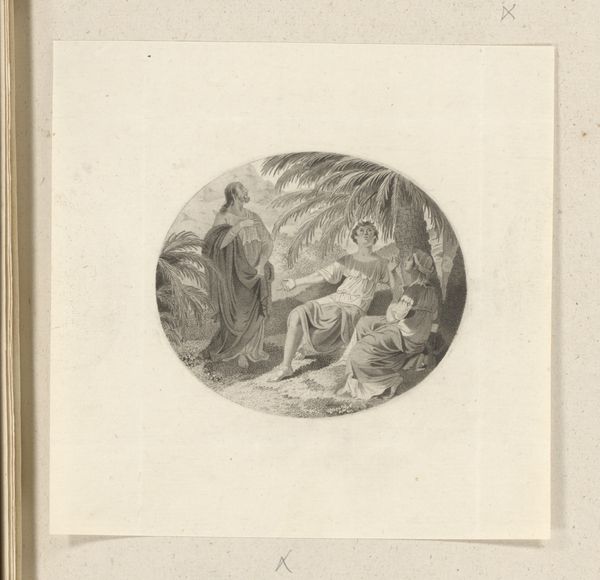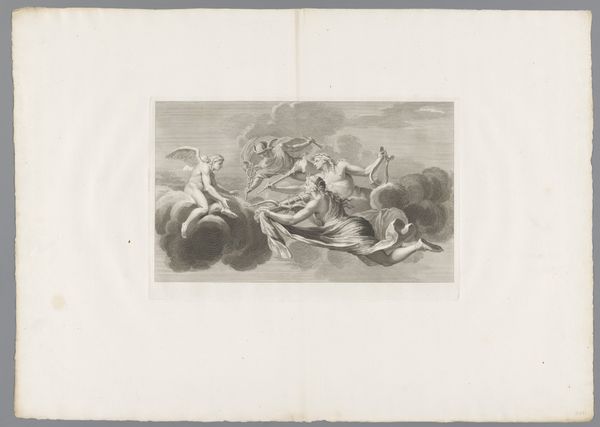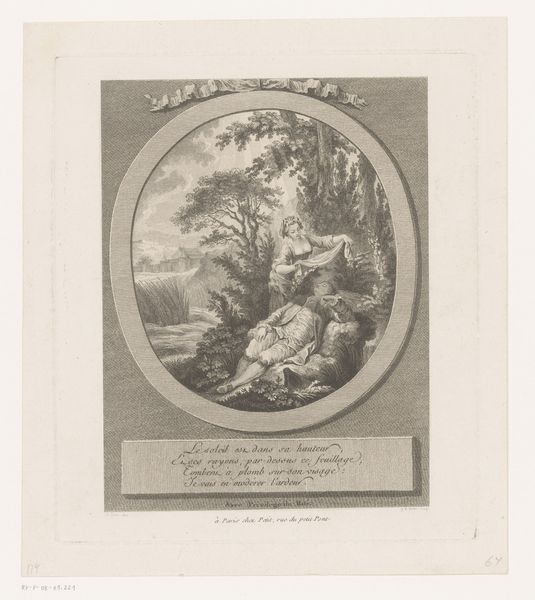
engraving
#
allegory
#
baroque
#
history-painting
#
engraving
Dimensions: height 350 mm, width 303 mm
Copyright: Rijks Museum: Open Domain
Nicolas de Beauvais created this print, "Amor Rooft de Bliksemschicht van Jupiter," sometime in the 18th century. It's made with an engraving technique, where the image is incised into a metal plate, ink is applied, and then the image is transferred to paper. The material influence is subtle but significant. The precision of the lines allows for detailed figurative work and tonal variation, seen in the delicate rendering of the bodies, drapery, and clouds. Engraving demands considerable skill and time, reflecting a culture of craft and specialized labor. This print wasn't just about aesthetics; it was a commodity, made to be circulated and consumed, indicative of growing commercialization of art during this period. The act of engraving allowed for replication, democratizing the image and reaching a broader audience beyond the elite. The artwork reveals the interconnection of labor, artistic skill, and social exchange inherent in its creation. It challenges any strict separation of fine art from craft.
Comments
No comments
Be the first to comment and join the conversation on the ultimate creative platform.
